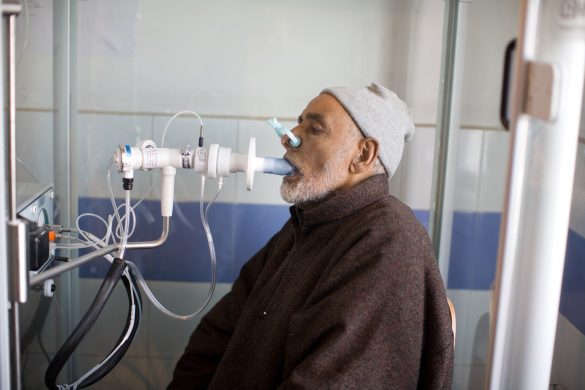Fødevare- og Landbrugsorganisationen (FAO), Fonden for Landbrugsudvikling (IFAD) og Verdensfødevareprogrammet (WFP) klare i mælet:
Landbrugskooperativer for småbønder tæller nu 800 mio. medlemmer og er et virkningsfuldt våben i kampen mod sult og fattigdom i Den 3. Verden.
ROME, 31 October 2011: Smallholder farmers gain big benefits from agricultural cooperatives including bargaining power and resource sharing that lead to food security and poverty reduction for millions.
This was underlined Monday by the UN Food and Agriculture Organization (FAO), the International Fund for Agricultural Development (IFAD) and the World Food Programme (WFP) on the occasion of the launch of the International Year of Cooperatives 2012 (IYC) in New York.
The importance of agricultural cooperatives in improving the lives of millions of smallholder farmers and their families cannot be overstated, the three Rome-based United Nations (UN) agencies said.
Empowered by being a part of a larger group, smallholder farmers can negotiate better terms in contract farming and lower prices for agricultural inputs like seeds, fertilizer and equipment.
In addition, cooperatives offer prospects that smallholder farmers would not be able to achieve individually such as helping them to secure land rights and better market opportunities.
Ranging from small-scale to multi-million dollar businesses across the globe, cooperatives operate in all sectors of the economy, count over 800 million members and provide 100 million jobs worldwide – 20 per cent more than multinational enterprises.
In 2008, the largest 300 cooperatives in the world had an aggregate turnover of 1,1 trillion US dollar, comparable to the gross domestic product (GDP) of many large countries.
A pillar of agricultural development and food security
Agriculture, including farming, forestry, fisheries and livestock, is the main source of employment and income in rural areas, where the majority of the world’s poor and hungry people live.
Agricultural cooperatives play an important role in supporting men and women small agricultural producers and marginalized groups by creating sustainable rural employment.
Producer cooperatives offer men and women smallholders market opportunities, and provide them with services such as better training in natural resource management, and better access to information, technologies, innovations and extension services.
In several countries, FAO provides quality seeds and fertilizers to farmers and agricultural cooperatives and works with them in applying more suitable and productive farming practices.
IFAD works with local agricultural cooperatives in Nepal on goat resource centres that help farmers develop markets for a sustainable supply of high-quality breeding goats.
Under the Purchase for Progress (P4P) pilot initiative, WFP and partners are working with smallholder farmers’ organisations in 21 countries to help them produce surpluses, gain access to markets and increase their incomes.
Through support such as this, smallholders can achieve sustainable livelihoods, improve food security in their communities and play a greater role in meeting the growing demand for food on local, national and international markets.
In Brazil, cooperatives were responsible for 37,2 percent of agricultural GDP and 5,4 percent of overall GDP in 2009, and earned about 3,6 billion dollar from exports.
In the island of Mauritius, cooperatives account for more than 60 percent of national production in the food crop sector and in Kenya the savings and credit cooperatives have assets worth 2,7 billion dollar, which account for 31 percent of gross national savings.
Supporting agricultural cooperatives: The IYC and beyond
The Rome-based UN agencies will promote the growth of agricultural cooperatives by:
• Carrying out initiatives to better understand cooperatives and assess their socio-economic development impact, and to raise awareness of their role and impact on the lives of men and women smallholder farmers – such as FAO’s database of good practices in institutional innovations;
• Supporting cooperatives to form networks through which smallholder producers can pool their assets and competencies to overcome market barriers and other constraints such as a lack of access to natural resources;
• Assisting policy-makers in the design and implementation of policies, laws, regulations and projects that take into consideration the needs and concerns of both men and women smallholder farmers and create enabling environment for agricultural cooperatives to thrive; and
• Strengthening the dialogue and cooperation between governments, agricultural cooperatives, the international research community and civil society representatives on analyzing the best conditions for cooperatives worldwide to develop.
During the year ahead and beyond, the Rome-based UN agencies will remain committed to supporting agricultural cooperatives, which provide members with economic advantages and offer them a wide range of services that build up their skills and improve their livelihoods.
Cooperatives offer a sound and viable business model suited to the needs of rural communities in developing countries, they conclude.
Kilde: www.fao.org














